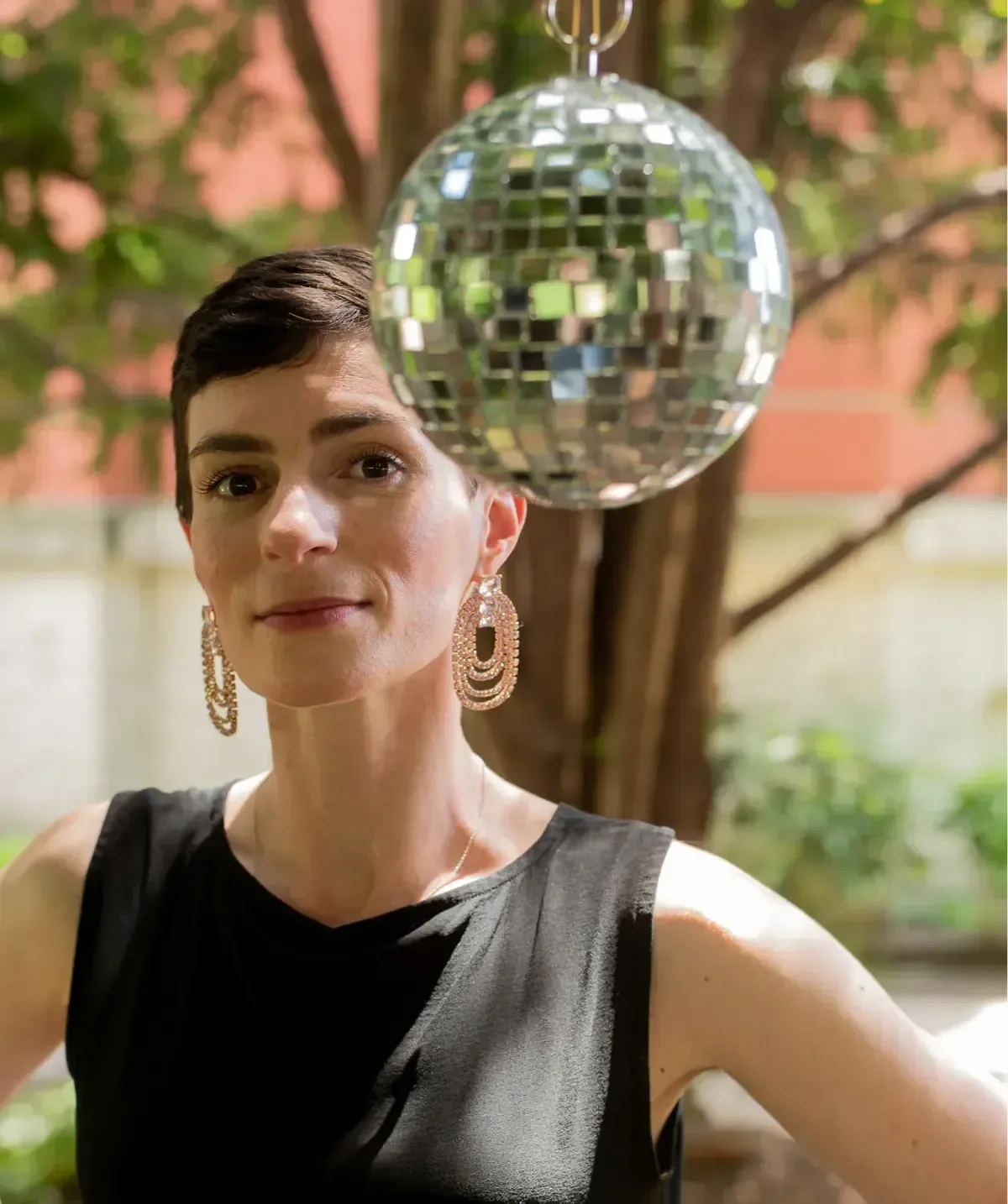If she can do that for me, I want to do that for other people: Female Disruptor Series #1
This is part 1 of an interview I did with Authority Magazine as part of their Female Disruptors series. We talk about trauma-informed work, sustainability in change-making, and what it takes to do things differently—without burning out. Each week, I’ll share a short excerpt that offers insight, reflection, or a spark of disruption.
You can read the original interview here.
Authority Magazine: Thank you so much for doing this with us! Before we dig in, our readers would like to get to know you a bit more. Can you tell us a bit about your “backstory”? What led you to this particular career path?
Adair: I’ve worn a lot of hats over the years: yoga & meditation guide, somatics teacher, trauma-informed facilitator, holistic/Ayurvedic health coach, academic researcher, and energy management/burnout specialist to name a few. All the while, the backbone of my business has had everything to do with helping people who are gifted in caring for others to take equally brilliant care of themselves. It’s through consistent, authentic self- and community care that people like us (changemakers, helpers, & healers) are able to keep doing the work we’re naturally drawn to — and good at!
When I was 22 (I’m 36 now), I was in a really dark place and started working with a social worker — a therapist — named Nancy Prowell. Nancy showed me how to use DBT (dialectical behavioral therapy), which combines cognitive behavioral therapy with mindfulness skills, to help with the burnout, anxiety, and depression I was living with. When our work was through, I was inspired to become a social worker. I thought,
“If she can do that for me, I want to do that for other people.”
In 2017, I graduated with my MSW (masters in social work). I was trained as a trauma therapist, and had completed an internship at a public mental health clinic. I thought I was going to be a therapist, but that experience changed the course of my career;
I witnessed how easy it was for clinicians to burn out and decided to move “further upstream” and focus on helping the helpers.
As a consultant, I facilitate workshops and trainings with businesses and organizations to help them become more trauma-informed and develop workplace cultures where clear communication and worker wellbeing are prioritized. As a coach, my workshops and group programs are spaces for people who want to dive deeper into connecting with their creativity and joy by resourcing their mental health, bodies, and nervous systems.
Interested in working together 1:1 or having me in for a workshop at your workplace or organization?

